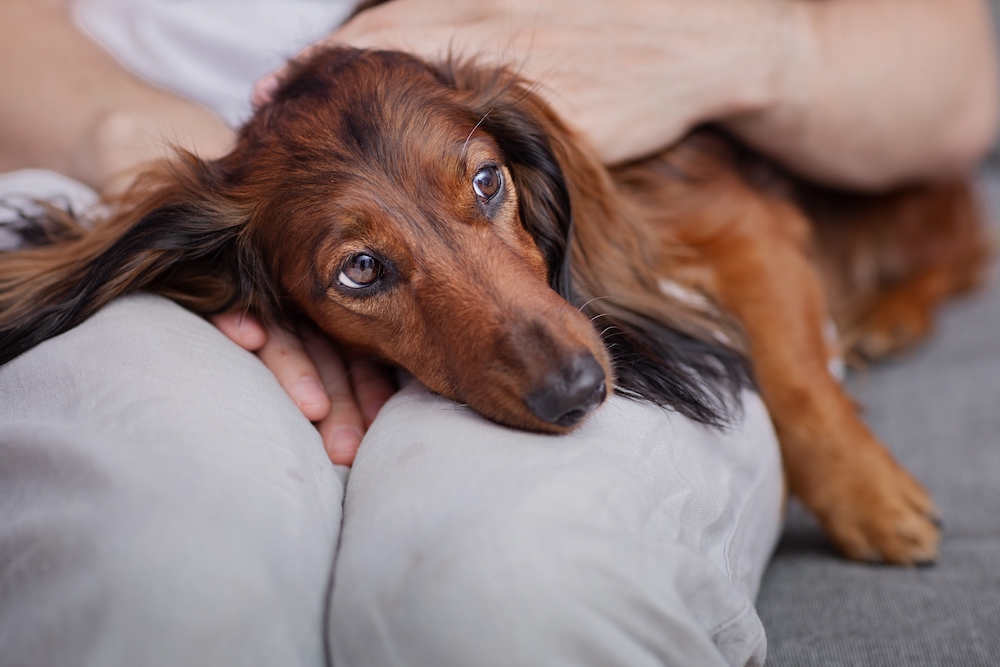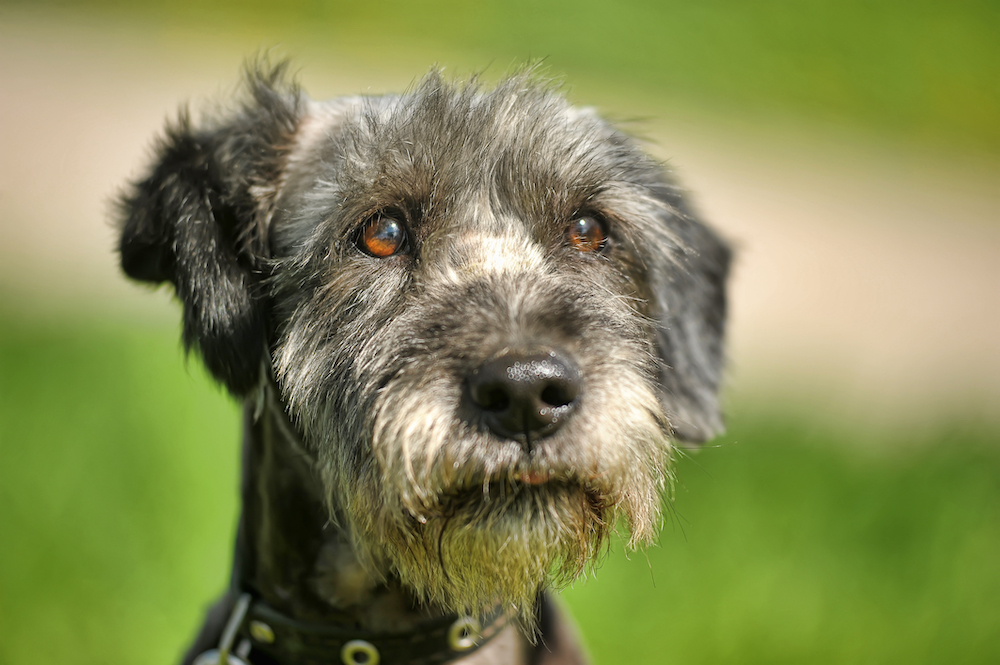Kennel cough is a common ailment in dogs, and in most cases it’s easy to identify and treat. Below, we discuss what to do if you suspect your dog has it, how to improve their chances of avoiding it, and when to see a veterinarian.
What is kennel cough?
Kennel cough, also known by the less-catchy name “infectious tracheobronchitis,” is a disease that makes dogs cough. It’s usually caused by a bacteria called Bordetella bronchiseptica or adenoviruses, parainfluenza, and coronaviruses. Because it can arise from a variety of infectious agents, it often goes by “canine infectious respiratory disease complex” (CIRDC).
How can dogs catch kennel cough?
Kennel cough is very contagious. It’s most likely to spread in areas where many dogs congregate—including, yes, kennels. But dogs can contract it anywhere through airborne droplets, germs left on surfaces, shared food or water bowls, or direct physical contact.
Where do dogs face the greatest risk? “It kind of parallels the human COVID protocols,” says Dr. Sarah Hoggan, medical director of emergency and critical care for VCA California Veterinary Specialists in Murrieta. While there are many places where dogs can contract kennel cough, crowded areas are especially dangerous.
How serious is kennel cough?
Kennel cough is usually mild, and most dogs recover within a few weeks. But some dogs suffer worse illnesses than others. Puppies especially could develop pneumonia as a result of kennel cough, while in some senior dogs it could lead to chronic bronchitis. Dogs with underlying conditions, and those who are unvaccinated, are also at a higher risk of serious illness from kennel cough.
What are the signs of kennel cough?
“Cough” is in its name, and a distinctive cough—one that some say sounds like goose honk—is the most common sign of this illness. In many dogs, a cough is the only clue that they’re sick. “Kennel cough dogs are usually still pretty bright and active, but they have a cough,” says Dr. Hoggan. “Dogs that have other causes of coughs—like pneumonia, heart failure, or advanced lung disease—don’t usually look like they feel good.”
Coughs from dogs with the condition may also resemble gagging, and sometimes a patient will cough up a frothy discharge that can be mistaken for vomit. Other signs of kennel cough can include a runny nose, sneezing, and—less often and in more severe cases—fever, lethargy, or a diminished appetite.
What other diseases resemble kennel cough?
Even if your dog exhibits one or two signs of the condition, you can’t assume that what they have is just a mild case of kennel cough. In addition to the aforementioned pneumonia, heart failure, and lung disease, canine influenza and distemper are conditions that can cause coughing. One reason it’s important to talk to a vet if you suspect your dog has kennel cough is to rule out these conditions.
If you bring your dog to the vet and believe they may have kennel cough or another contagious disease, let the staff know ahead of time so that they can protect other dogs from infection.

How do veterinarians diagnose kennel cough?
If you bring your dog to a vet because you suspect kennel cough, the doctor will ask you about their history and signs of illness. They’ll conduct a physical examination. If your dog has been in a setting where exposure was probable and their signs point to kennel cough, the vet might begin treating them as if that’s what they have. They may also swab to test for viruses and bacteria that cause kennel cough. In some cases, a vet will take X-rays to assess how severe the patient’s illness is—and to make sure that it’s not being caused by something else.
The exact course of the vet visit, and what treatments the doctor recommends, will vary with each individual dog. If there are signs that a dog is feeling very sick, the vet will be more apt to perform tests to rule out problems other than kennel cough.
“Is this just a cough,” Dr. Hoggan asks, “or is your dog actually working to breathe? Their gums should be the color of pink Bazooka bubble gum. If they look like grape Bazooka, then the worry is they’re struggling for air; that’s an ‘Oh my God, rush them to the hospital” situation, and those are the dogs where you wouldn’t ever want to say ‘we’re just going to treat him without doing any diagnostics and hope for the best.’”
What can humans do to protect their dogs from kennel cough?
There is a vaccine for Bordetella, and vets recommend it for many dogs—particularly those who spend time in close quarters with other pups. It can be delivered orally, as a shot, or through the nose. The Bordetella vaccine doesn’t offer perfect protection against infection, and dogs require boosters to stay up to date. Plus, it doesn’t match the other bacteria and viruses that can cause kennel cough. Still, Dr. Hoggan says it’s definitely worthwhile. “If you get the infection,” she says, “then you’re not as sick; it reduces the severity.”
Dr. Hoggan says that, to improve the effectiveness of a Bordetella booster, it can make sense to schedule your dog’s dose for two weeks or so before they’re going to be boarded or spend time in another setting around a lot of other dogs. “If you vaccinate them a day before they go into an environment where there’s likely to be exposure,” she says, “their body hasn’t had the time to build up the forces that it needs.” After two weeks, they should have more antibodies.
If you have multiple dogs, and one of them has kennel cough, keep the infected dog separate and make sure they don’t share toys or bowls with their siblings. Once your dog has recovered, wash their items before putting them back into circulation. A dishwasher works best. If you have to wash by hand, a thorough scrub with soap and water, followed by fully drying, goes a long way.
How do you treat kennel cough?
Most dogs get better from kennel cough within a few weeks, and sometimes all they need is rest. This means preventing your dog from getting too excited and protecting them from anything that could lead to more coughing (for example, no leashes around the neck).
However, in other cases, dogs with kennel cough require veterinary attention. This may involve non-steroidal anti-inflammatory medication and fluids. A vet may also prescribe antibiotics in some circumstances, and in very severe cases a dog may receive oxygen supplementation.
Cough suppressants will not cure kennel cough, but can give a dog some relief.
If your dog’s staying at home and resting with you, make sure that they always have access to water and that they don’t engage in exercise or vigorous play—too much exertion could make their condition worse.
Can I catch kennel cough from my dog?
It’s rare, but humans can catch kennel cough. People with compromised immune systems are most at risk. The Bordetella that can cause kennel cough is related to, but not the same as, Bordetella pertussis, which causes whooping cough in humans. A person who does contract kennel cough might have symptoms like a cough, sore throat, or fever. While it is unusual for a person to get kennel cough, and the vast majority of those who do have an underlying condition, it’s important to seek medical attention to avoid serious or life-threatening complications. If you suspect that you have kennel cough, contact your doctor for treatment options—they may prescribe human-specific medications, which you should not share with your pup.
Can my cat catch kennel cough from my dog?
Dogs and cats can catch kennel cough from one another—so if one of your pets is sick, take measures to protect the others from infection.
The post What You Need to Know About Kennel Cough appeared first on The Farmer's Dog.



Comments
Post a Comment